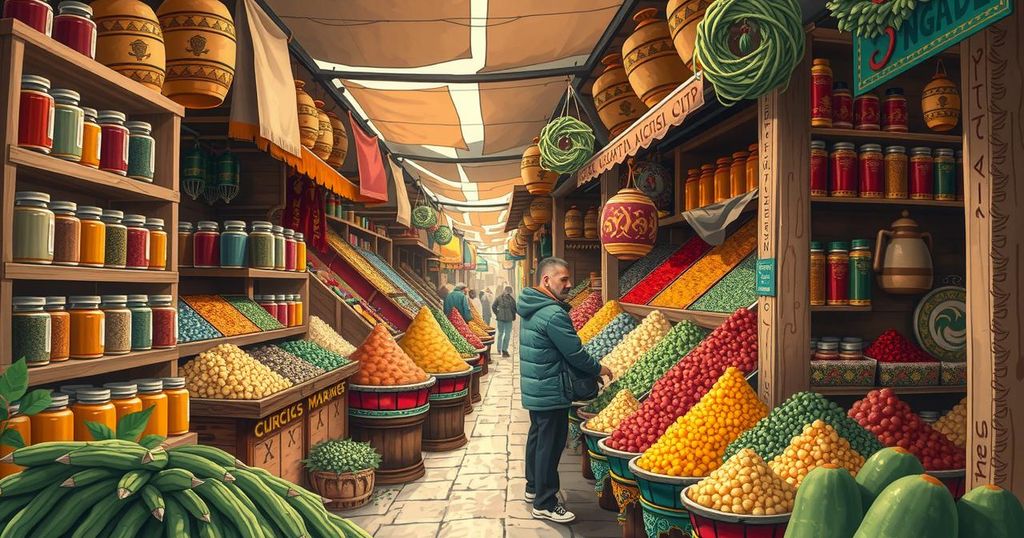Morocco is set to import more dates as Ramadan approaches, facing challenges from drought affecting local production. Reports indicate that most dates in markets are sourced internationally, primarily from Egypt and Tunisia. Recent agreements aim to strengthen the date industry, while annual consumption during Ramadan underscores the importance of dates in Moroccan culture.
Morocco is preparing to increase its import of dates in anticipation of the approaching holy month of Ramadan. Recent reports highlight the country’s efforts to satisfy local demand for dates amidst difficulties stemming from a weak rainfall season, which has been the lowest in the past 30 years. This dryness is expected to adversely impact the agricultural sector, resulting in reduced cereal production and greater reliance on imports of typically domestically-grown products.
A report from agriculture-focused outlet FreshPlaza indicated that most dates available in markets, including Casablanca, are imported. The surge in demand from Moroccan consumers before and during Ramadan has been notable. An importer mentioned, “This year, we’re seeing even fewer Moroccan dates because of the drought in the main growing areas.” In addition to Tunisian dates, Morocco imports from Egypt, Saudi Arabia, and other countries to meet the demands of its population.
To enhance its date palm sector, Morocco signed six new agreements in October 2024 aimed at improving practices and resilience in the Drâa-Tafilalet region, a primary area for date production. These agreements focus on advancing agricultural methods, encouraging innovation, and providing tailored support for local farmers. In the 2023-2024 season, the ministry projected date production levels at approximately 115,000 tons.
During Ramadan, dates are integral to the meal routines in Morocco, where they are traditionally consumed to break the fast, often paired with milk or water. The holy month fosters a lively atmosphere as Muslims fast for 29 or 30 days, contingent on the sighting of the crescent moon. This year, Ramadan is expected to begin on March 1, with the official date confirmed by Morocco’s Islamic Affairs Ministry once the moon is sighted.
In summary, Morocco is actively seeking to import dates to meet the increased demand during Ramadan, particularly in light of the adverse effects of drought on local production. With significant reliance on imports from various countries, including Egypt and Tunisia, Morocco continues to bolster its agricultural practices. The importance of dates during Ramadan highlights their cultural significance in Moroccan society, marking the month as a time of community and tradition.
Original Source: www.moroccoworldnews.com






